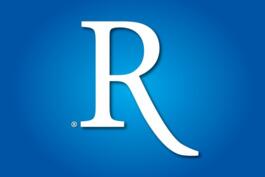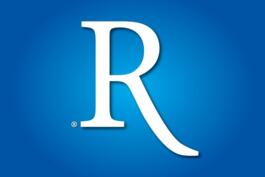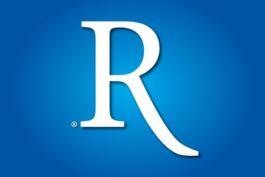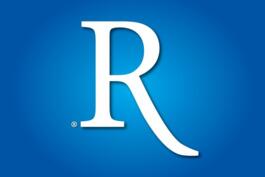Trump May Be What Grant Was for Lincoln’s America
A Commentary by Charles Hurt
Once again Donald Trump revealed his true inner racist self by going to a famous Civil War battlefield in a nod to the spectacular turning point in that epic war.
It was a dog whistle to racist white Southerners who are out of work, under invasion and angry with all the broken promises of a blind and belligerent federal government.
Mr. Trump — a loud Yankee if there ever was one! — went to Gettysburg and appropriated the heritage of racist white Southerners to use to his political advantage — oh wait, what was Gettysburg again?
If you are part of the stupid media, you have absolutely no idea except that there were some evil racist white men fighting for slavery against great noblemen with unblemished hearts fighting for the freedom of African-Americans. Seriously.
Gettysburg was the Southern army’s high-water mark during the Civil War. The very tip of that spear was Gen. Lewis Armistead, who fell leading Pickett’s Charge up a hill toward Cemetery Ridge. It was a brave assault, but a complete and disastrous failure from which the South never recovered.
General Robert E. Lee was decisively beaten and retreated south, never to return. A bitter, bitter pill for Southerners — then and today — who love to study the war that even now remains America’s deadliest.
If Mr. Trump’s Gettysburg Address was supposed to be some kind of racist dog whistle to white Southerners, then he was blowing it from the wrong end.
In this scenario, Mr. Trump is seeking a dramatic and decisive turnaround just as President Abraham Lincoln did seven score and 13 years ago.
Certainly, Mr. Trump appears to face a hill every bit as steep as Cemetery Ridge. And the phalanx of enemy troops in the media and in politics waiting for him at the top of the ridge is every bit as formidable.
His Contract with the American Voter is great, though it may have arrived on the battlefield even later than Gen. James Longstreet did in 1863. Its value in this battle may prove no more effective than those of the great cavalry commander J.E.B. Stuart.
Mr. Trump’s prosecution of Hillary Clinton’s failed 30-year career in Washington and his promise to “drain the swamp” are terrific, though may not be enough to overcome the universal media hatred he faces.
Whatever happens, it is good for us to remember Gettysburg and those impossibly bleak years. America survived that, and America will survive even this.
Beyond that, any analogies to that great battle are a bit stretched, except perhaps one.
At this point in the Civil War, President Lincoln was at the very end of his patience with generals who had such big and beautiful armies but who were apprehensive about sending them into battle. After Union Gen. George Meade repulsed Gen. Lee’s attack at Gettysburg, he failed to aggressively go on the offense and destroy Gen. Lee’s army once and for all before he could escape back into Virginia.
The war would grind on for another year and nine horrific months.
It all changed when President Lincoln finally found General Ulysses S. Grant, who was a coarse, brash and impolitic general. But he was aggressive, and that is what President Lincoln wanted.
All his other generals and his entire war cabinet — the media and political elite of that day — gasped in horror that Mr. Lincoln would hand such a prestigious position over to such a brute and unsophisticated man.
“But he is a drunkard!” they declared. To which Mr. Lincoln responded: “Find out what kind of whiskey he drinks and send a barrel to every one of my commanders.”
Gen. Grant may not have been pretty, and he would go on to helm one of the most corrupt presidencies in U.S. history.
But he saved the Union.
Charles Hurt can be reached at charleshurt@live.com; follow him on Twitter via @charleshurt.
See Other Political Commentary by Charles Hurt.
See Other Political Commentary.
Views expressed in this column are those of the author, not those of Rasmussen Reports. Comments about this content should be directed to the author or syndicate.
Rasmussen Reports is a media company specializing in the collection, publication and distribution of public opinion information.
We conduct public opinion polls on a variety of topics to inform our audience on events in the news and other topics of interest. To ensure editorial control and independence, we pay for the polls ourselves and generate revenue through the sale of subscriptions, sponsorships, and advertising. Nightly polling on politics, business and lifestyle topics provides the content to update the Rasmussen Reports web site many times each day. If it's in the news, it's in our polls. Additionally, the data drives a daily update newsletter and various media outlets across the country.
Some information, including the Rasmussen Reports daily Presidential Tracking Poll and commentaries are available for free to the general public. Subscriptions are available for $4.95 a month or 34.95 a year that provide subscribers with exclusive access to more than 20 stories per week on upcoming elections, consumer confidence, and issues that affect us all. For those who are really into the numbers, Platinum Members can review demographic crosstabs and a full history of our data.
To learn more about our methodology, click here.



